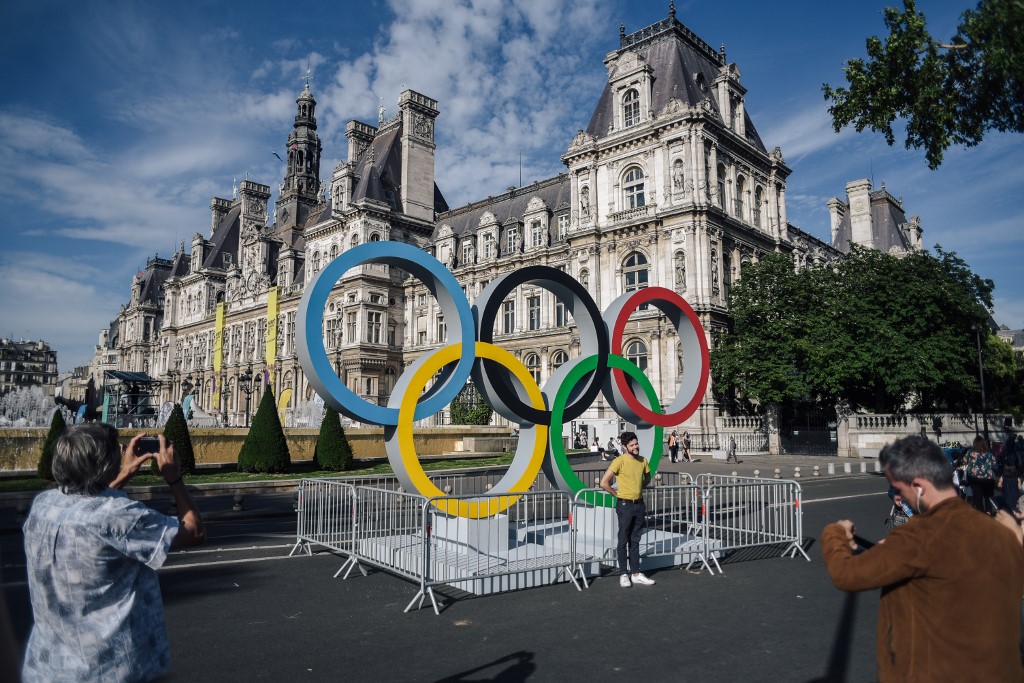IOC seeks insurance compensation for delayed Tokyo Olympics

People pose in front of the Olympics rings installed in front of the Paris City Hall during the “Olympics Day” organized by the the “Comite National Olympique et Sportif Francais ” (CNOSF) to celebrate the upcoming of the 2024 Paris Olympics Games, in Paris on June 23, 2018. (Photo by LUCAS BARIOULET / AFP)
GENEVA, Switzerland—The International Olympic Committee is in talks with insurers over being compensated for the postponed Tokyo Games.
An “open discussion” is under way with insurance brokers, the IOC’s Olympic Games operations director Pierre Ducrey said Thursday. The aim is “to try and find the right level of compensation to help us bear the cost of having to wait another year,” Ducrey said.
The IOC pays for insurance against the cancellation of an Olympics but it has been unclear if its policy covers the one-year postponement forced by the coronavirus pandemic.
Cancellation policies detailed in the IOC’s annual accounts cost $14.4 million for the 2016 Rio de Janeiro Olympics and $12.8 million for the 2018 Pyeongchang Winter Games.
The IOC said last month it set aside $650 million to cover its own potential extra costs for the postponement.
Costs for organizers in Japan are expected to reach billions of dollars, with most of the bill paid for by taxpayers.
Ducrey said retaining the Olympic Village for another year was “problem No. 1.”
The complex of more than 5,600 apartments in Tokyo Bay is “a fundamental piece of being able to deliver the games,” Ducrey said during an online conference with sports management students in India.
Around 25% of the apartments have been pre-sold to people who will move in after the Olympics are over, and those buyers are set to receive some compensation for having to wait an extra year before taking possession.
“Obviously you have planned your whole life about getting this apartment at that point in time,” Ducrey said. “Now we have to tell all of these owners, ‘Oh, sorry. Your apartment will be delivered to you a year later.’”
“It is a huge change and requires a number of compensations and discussions,” he said.
Earlier Thursday in Tokyo, public officials and Olympic organizing committee staffers said they expect the games to be “streamlined and simplified” to manage costs, and with fewer fans in venues.